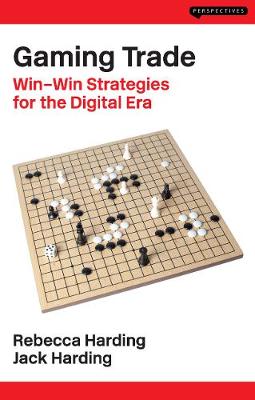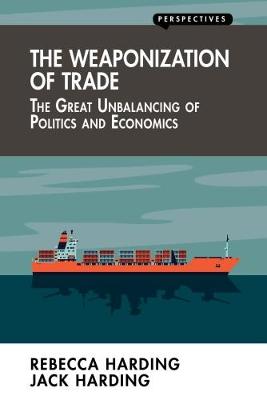Perspectives
2 total works
Trade is no longer just the ships, planes and lorries that move the goods we buy around the world or the services we consume either physically or digitally. While trade still plays a fundamental role in achieving economic targets and promoting growth, it is also, in the modern era, an instrument of state strategy in the contest for international influence and power.
With powerful states increasingly reluctant to engage one another through conventional military means, questions about how to build power and protect national interests arise. Today, influence and power are not achieved solely through hard, soft or sharp power, but also through a state’s ability to operate at the intersection of all three. This `all means’ approach to power politics is characterized by a blending of conventional military force with other means, such as cyber- and information warfare, and, increasingly, through trade.
Trade is the delivery mechanism through which technology is transferred and, as such, it has become a proxy in the global struggle for power and hegemony. This book examines the US, Chinese and Russian approaches to `strategic trade’ and argues that Europe must adapt or lose out. The authors call on world leaders and international organizations to stop focusing on what drives their own power and to look instead at the root causes of populism – unregulated technology, inequality, disadvantage and environmental destruction – to ensure that multilateralism survives and that a return to the mutually beneficial aspects of trade can be realized.
With powerful states increasingly reluctant to engage one another through conventional military means, questions about how to build power and protect national interests arise. Today, influence and power are not achieved solely through hard, soft or sharp power, but also through a state’s ability to operate at the intersection of all three. This `all means’ approach to power politics is characterized by a blending of conventional military force with other means, such as cyber- and information warfare, and, increasingly, through trade.
Trade is the delivery mechanism through which technology is transferred and, as such, it has become a proxy in the global struggle for power and hegemony. This book examines the US, Chinese and Russian approaches to `strategic trade’ and argues that Europe must adapt or lose out. The authors call on world leaders and international organizations to stop focusing on what drives their own power and to look instead at the root causes of populism – unregulated technology, inequality, disadvantage and environmental destruction – to ensure that multilateralism survives and that a return to the mutually beneficial aspects of trade can be realized.
Trade is being weaponized - and this isn't good. As politicians on both sides of the Atlantic raise the stakes, trade is increasingly a tool of coercion to achieve strategic influence. Although trade, wars and foreign policy have been interwoven throughout history, the belligerence of the language today means trade is becoming predominantly political and strategic, rather than economic.
This book looks at why politicians have resorted to economic nationalism, using the rhetoric of conflict to recapture the lost territory of global leadership and to win the hearts and minds of their `populist' electorates. The authors also present new data on unseen trade in arms and dual-use goods that are used to fight proxy wars, wreaking havoc with beneficial trade and increasing migration, which in turn further fuels the fear and the febrile atmosphere at home. They present policy recommendations for reversing these trends: increasing trade finance, promoting the benefits of globalization and controlling the export of weapons. We are at an historical juncture as globalization itself is called into question. The political, economic and technological progress of the last 30 years is under threat. Unless governments retreat from their current rhetoric, the scope for mistrust and retaliation will grow. There will be no winners.
This book looks at why politicians have resorted to economic nationalism, using the rhetoric of conflict to recapture the lost territory of global leadership and to win the hearts and minds of their `populist' electorates. The authors also present new data on unseen trade in arms and dual-use goods that are used to fight proxy wars, wreaking havoc with beneficial trade and increasing migration, which in turn further fuels the fear and the febrile atmosphere at home. They present policy recommendations for reversing these trends: increasing trade finance, promoting the benefits of globalization and controlling the export of weapons. We are at an historical juncture as globalization itself is called into question. The political, economic and technological progress of the last 30 years is under threat. Unless governments retreat from their current rhetoric, the scope for mistrust and retaliation will grow. There will be no winners.

